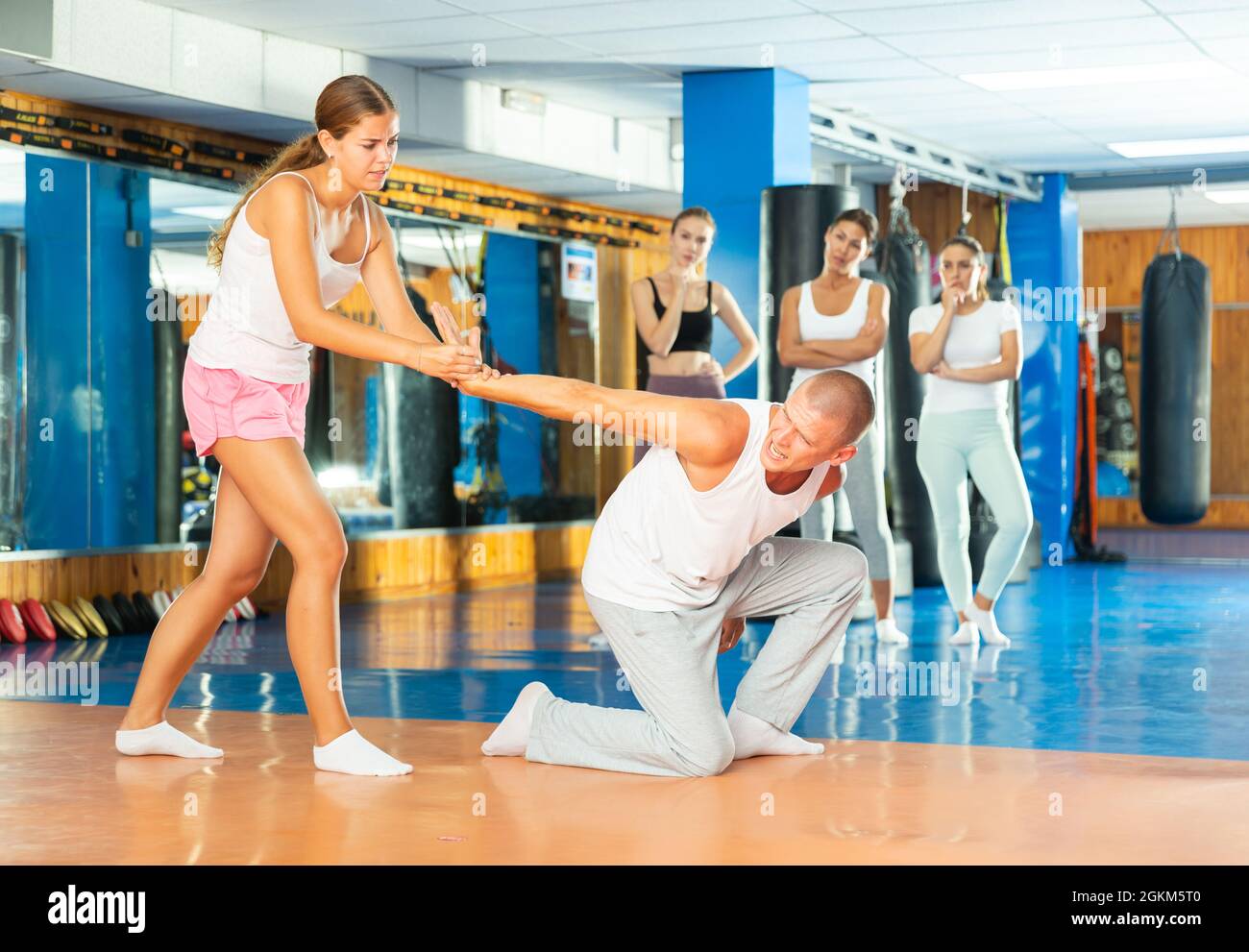
A panic alarm is an electronic device that alerts to an emergency situation. These devices can either be wireless or fixed, and can also be programmed to sound in specific situations. Some of them are also monitored and use geolocation technology to contact emergency services in case of a panic attack. A panic alarm can help to keep you calm and to take the appropriate actions to avoid any serious problems.
Technology-driven panic alarms
Technology-driven panic alerts can be used to quickly notify authorities of panic attacks. Computer-based panic alarms work faster and are more reliable than traditional alarms because they use a variety of communication channels. They also provide staff with useful information that allows them to respond quickly, effectively and efficiently.
Following the Florida school shooting, legislators have been working to pass legislation that would make panic buttons in every school. This legislation is expected to be passed in the coming days, and it will require panic alarms to be linked to a mobile phone application. This application will notify the police and allow staff to assist students immediately.
Wireless panic alarms
Wireless panic alarms are very useful in emergency situations. Housekeepers who work in hotels are at greatest risk for being assaulted. Seattle research shows that 53% housekeepers have been victim to harassment at one time or another during their career. Eighteen out of ten hotel workers were also targeted. These incidents have motivated many housekeepers in the hospitality field to insist on panic button systems being mandatory.

Wireless panic alarms are a great choice for workplaces because they do not rely on cellular service or wired connection. They are great for places with sensitive equipment, lone workers, and other areas.
Panic buttons fixed
Fixed panic alarms are placed on the walls to transmit an alert directly to emergency personnel and security personnel. These buttons are most useful in places where it is easy to reach a panic button. You can use them at home to set up a security system. These devices can be especially helpful for single workers who are more vulnerable to attacks.
Some panic alarms come with wireless connections that allow you to activate them without the need for an extra device. These alarms send an alert to emergency services and to a monitoring centre. They can also alert the police. Many panic alarms include a silent alarm that alerts local security guards.
Geolocation technology is used to monitor devices
For emergency situations, geolocation technology-enabled monitored devices are ideal. The monitored devices, which are not wired panic alarms, allow you to remain in touch with loved ones and colleagues. They can also call a limited number for assistance. Some devices allow you to call 911 in the event of an emergency.
These devices use GPS to track users in real-time and send a voice communications path to the monitoring center. After assessing the situation, the operator will dispatch the appropriate emergency personnel.

Panic alarms are a great option for single workers
Panic alarms are a great way for lone workers to be protected. They can be clipped to clothes or worn around the neck. They can also be activated discreetly and easily. Many of these alarms also have additional features such as automatic fall detection. These alarms can also be used to track the location of a single worker using GPS.
The device can send a signal to a designated person or to a monitoring center. Depending on which device it is, the alert may be audible (or silent). An audible signal can startle an aggressor. In addition, the single worker can explain what happened and still request help.
FAQ
How do beginners do self-defense?
Self-defense does not require that you have been trained by an expert. You must also be able to defend yourself alone. You should learn some basic moves to protect yourself from an attack.
Start with simple moves such as punching, kicks, and kneeing. Then you can add more advanced moves like grappling and joint locks.
It is always beneficial to practice what you might encounter in real-life situations. You should try to learn how you can kick someone on a soft surface like a pillow.
By doing this, you will not injure yourself while practicing. Don't hit anything too hard or you might damage something.
What is the best self-defense strategy?
To defend yourself against an attack, avoid it entirely. When you are attacked, it is best to flee as fast and as possible. This will give you time to think of a better defense strategy.
Use any defensive techniques that you know if you are unable to escape. These include punches, kicks, and knees. To stop your attacker from attacking you more, you can grab his arms and legs.
If none these options work, then you need to use every tool at your disposal. Your bare hands are the best weapon. However, if you do not know how to use them properly, then you should consider learning some other form of self-defense first.
Can I carry a stun gun legally?
Yes. However, you will need a permit issued by your state.
You must complete an application form to apply for a permit and pay a fee.
You must keep your permit visible, such as in your wallet, once you receive it.
You will need to repeat the process if your permit is lost.
What are some self defense tips for women?
Self-defense requires you to be able react quickly to any situation. You must be prepared for everything.
Training with a friend is one of the most rewarding things you can do. Training with a friend allows you to practice together and improve your technique.
Another tip is that you should practice with something heavier. You'll be more likely than your attacker to attack you if you have something heavy.
Do stun guns hurt people?
You're not wrong. The stun gun injects a tiny amount of current into the skin.
This doesn't mean that you will suffer permanent damage.
How can I learn self-defense at home?
If you are looking for a way to improve your self-defense skills, there are many ways to do this. Martial arts is the best place to begin. Martial Arts are great because they teach you how to defend yourself without using weapons. They build confidence and improve fitness. Online classes are also available at most schools. It is important that you know which type of martial arts you wish learn. Do you want to learn Kung Fu? Or perhaps Karate? These two styles are very different from each other, but both are excellent choices. They are largely different because of the type of fighting used. Karate is focused on striking techniques, while Kung Fu focuses more on grappling and kicking.
Another thing to consider when choosing a school is whether or not they offer instruction in multiple forms. This refers to the various martial arts styles taught within a single school. Some schools specialize in one type of Martial Art, like Tai Chi. Other schools offer instruction across a range of martial Arts styles. Make sure you only study at a well-respected school, regardless of what your goals are. Ask around to see if anyone you know has studied there and asked questions regarding the instructors' background and training history. Talk to someone who teaches at the school if you can.
Statistics
- Some people walk into a gym thinking they are going to become the best by training whenever they like and not putting 100% effort in. (budodragon.com)
- Kung Fu alone has 400 unique martial art styles – and whilst you likely won't be able to find a school for each form, many other martial arts are completely different altogether. (budodragon.com)
- In a January 2018 survey of 1,000 women nationwide, 81 percent reported experiencing some form of sexual harassment, assault, or both in their lifetime. (healthline.com)
- The Rape, Abuse & Incest National Network reports that 70 percent of sexual violence cases aren't committed by random strangers in a dark alley but by people we know: friends, family, partners, co-workers, etc. (healthline.com)
External Links
How To
How To Survive A Home Invasion
Home invasion is scary, especially for children. We didn't expect to live through home invasion when we started our journey with installing a home security system. Here's the information we've gleaned so far.
-
Do not let your children see the attackers. Two men broke into our home upstairs while our kids were sleeping. We kept them downstairs till the police arrived. The police arrived and our kids were not hurt. However, the traumatizing images did enough to make them feel scared.
-
Lock Up All Valuables. The safe is located in our bedroom. We keep all valuables locked up. Even if someone breaks into the house, they won't be able to access it.
-
Keep an eye out on burglars. Our neighborhood is known for its high number of burglaries. We keep a look out for suspicious people and cars.
-
Always have a backup plan. If anything happens to us, our family will be taken care of financially. We also have a plan in place to leave the country if necessary.
-
Prepare. Prepare for anything. Be prepared with food, water, as well as other supplies.
-
Get help immediately by calling 911. After you discover that someone is breaking into your home, immediately call 911. It is better than waiting for authorities to knock on your door.
-
Use common sense. Don't let anyone inside who doesn't belong there. Don't invite strangers over.
-
Reach out to your neighbours or other residents in your area for assistance. If you feel unsafe call neighbors and friends. They can help you watch your back while you call the police.
-
Be calm and follow the instructions of police officers. Keep calm and do as the officers direct. Do not run away from officers or resist arrest.
-
Take pictures of any evidence. Take pictures of any evidence found during the investigation. This includes blood samples and fingerprints.
-
Local Law Enforcement can be contacted to file a report. You can file a police report even if nobody was hurt. It may help you avoid future criminal acts.
-
Get in touch immediately with the Insurance Company. Get in touch with your insurance company immediately. You can tell them all about what happened and they will send an adjuster out to assess the damage.
-
Remove Personal Belongings. Remove personal belongings before leaving the scene. Don't wear expensive jewelry. Take it off and put it away.
-
Take Care of Yourself. Take care of yourself. Make sure you empty the trash, clean up any broken glass, and lock all doors.
-
Talk about What Has Been. It is not a good idea to talk about the events that happened to you. You never know who might try to use this information against you later on.